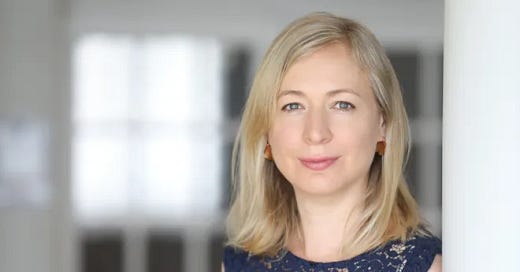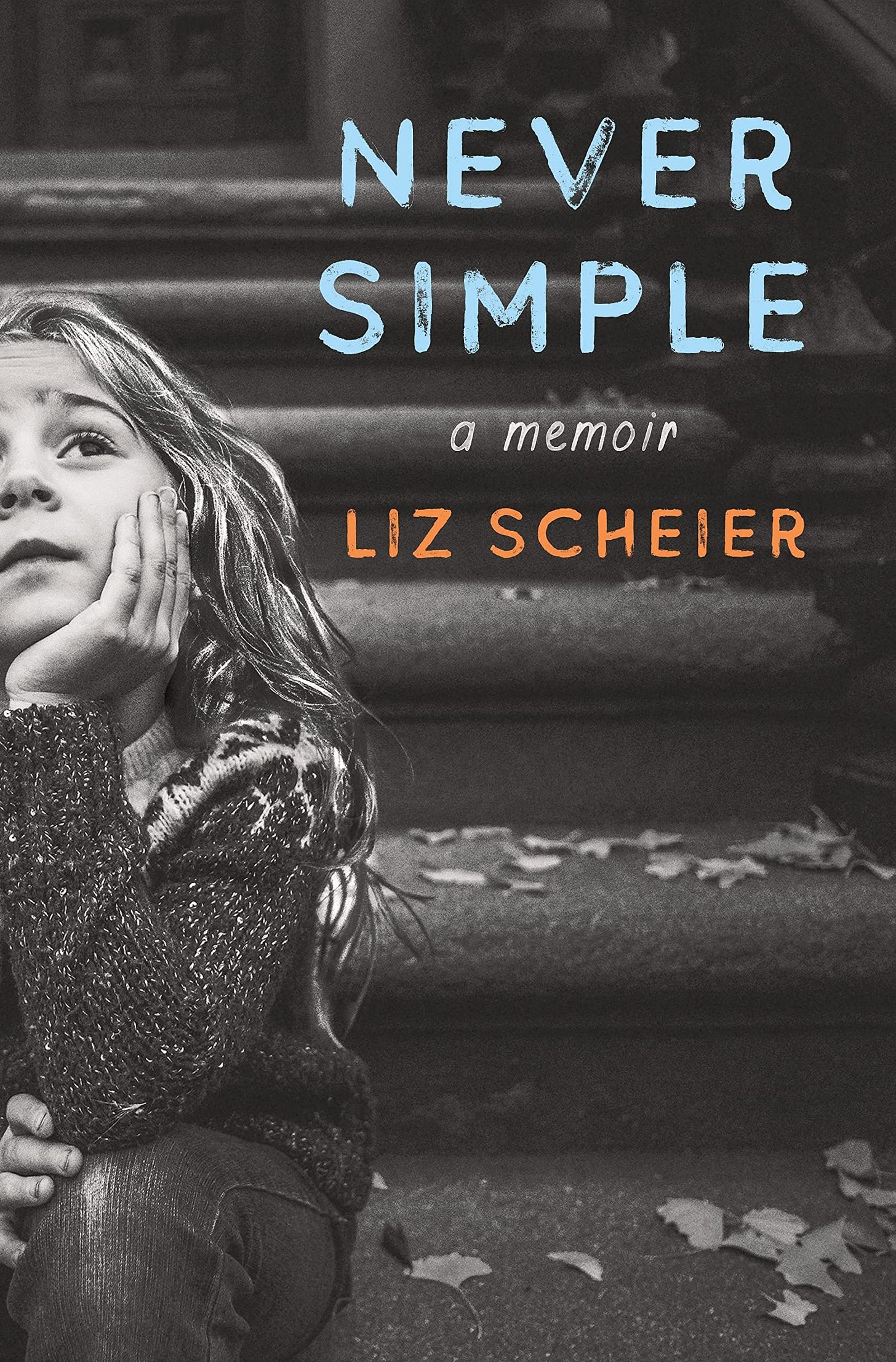Five Questions with Author Liz Scheier
We talk about her memoir Never Simple and Bad Art Friend
I’ve written before about my love for memoirs exploring mother-daughter relationships. Some of my favorites include All You Can Ever Know, Somebody’s Daughter and Wild Game.
Liz Scheier has added to the genre with her brilliant new memoir, Never Simple. It’s equal parts touching, devastating and darkly funny, as Liz documents her relationship with her mother Judith, a charming, abusive liar. The book opens with Judith telling 18-year-old Liz that everything she knew about her father was a lie , a fiction she’d supported by a fake social security number and countless smaller half-truths. Twenty years later, Liz received a voicemail from Adult Protective Services saying her mom was facing eviction — and homelessness — after refusing to pay her rent for more than a year.
Liz writes about her mother with remarkable compassion and maintains a sense of humor throughout the book, a seriously impressive feat. She was kind enough to talk with me — the day after she published a New York Times guest essay (!) — about her path to publishing, the book’s reception and more. Our conversation has been edited and condensed for clarity.
Can you describe the process of writing and publishing Never Simple?
Let me start in the way back. I come from publishing. I was an editor at Penguin and Random House, back when they were two different companies. I was a romance editor, then a science fiction editor and then a kind-of-everything editor. I left only when the economy tanked in 2009. Random House laid off a third of its staff in one day. So, publishing is really where my heart is. It’s been fun and interesting to be on this side of the table.
I started this in 2018 when I had just come back from maternity leave with my second child. I had a full-time job, all the other random obligations we all have, and two kids under a year and a half. I realized if I wanted to have anything in my life that was not product development sprints, it had to happen in my lunchtime because that’s when I had free time and childcare. So, two days a week, I went to the gym and three days a week, I started working on this project.
I started writing it because my mother was in the real downslope of her life, and I was spending hours and hours every week on the phone with lawyers, social workers, caseworkers and whoever she could run afoul of. I just needed somewhere to put rage, fear and frustration.
About a year after I started, she died suddenly and I realized I had around 50,000 words, or half a book. I thought, ‘Maybe this wasn’t just for me. Maybe there is something here for other people.’ When I got pregnant with my first child, I tried to find books that explored how to parent when your own model growing up was chaotic. I couldn’t find anything. There are tons of mother-daughter memoirs out there, the world is not hurting for those, but I couldn’t find any that went down a generation that explained how to not just repeat the pattern.
It took another year to finish because I only had these three hours a week to work on it. From there, I hired an independent editor to work on it and brought it to my top-choice agent in early September. It went to auction and sold on October 2.
What’s it like for you now to have people read something so personal?
That has definitely been quite an experience. It’s a very vulnerable position, no matter what you’ve written. But if you write a novel and people don’t like the characters, it’s fine. There’s no accounting for taste. The response I’m getting to this book, though, is about my life, my decisions and how I’ve approached them.
The responses I’ve gotten personally have been incredibly gratifying. A lot of people have reached out saying, ‘I was also raised by a parent with borderline personality disorder, and I never told anyone because I didn’t know how to explain it.’
Then, there’s been a subset of people who have received a borderline personality disorder diagnosis, and they don’t think it’s true or don’t think it’s a valid diagnosis. I’ve gotten messages saying ‘Your mother should have put you in foster care’ or ‘You were the abuser in that relationship.’ It’s so strange to have so many people’s parental relationships compared to yours.
There’s also just that people in my life now know a lot about me in ways they didn’t before. A few weeks ago, my neighbor sidled up to me and said ‘How does it feel to know you took off your clothes and got naked in front of the world?’ And that is how it feels.
In the book, you write about your experience as a live kidney donor. I have to ask, what did you think of Bad Art Friend?
Oh, gosh, that was a lot of people behaving badly. It is not super fresh in my mind at the moment, but I tend to be of the opinion that when people do good things for bad reasons, at least something good came out of it.
You’re working on your second book. Can you preview it for us?
I have written a novel, which I’m doing final edits on now. My agent and I will start shopping it later in the spring. It is a three-point-of-view novel about a person who learns late in life she was donor-conceived. It’s told in her voice, the donor’s voice and her mother’s voice.
And my favorite question to ask: Any books you want to recommend?
I think everyone should read Danielle Henderson’s The Ugly Cry. It is phenomenal. Ashley Ford’s Somebody’s Daughter was also a favorite.
I just finished Neel Patel’s Tell Me How to Be, which was fantastic, as was Heather Havrilesky’s Foreverland: On The Divine Tedium of Marriage. It’s such a great title. I loved it. It’s interesting to hear somebody talking about all the difficult parts of marriage from a position of being happily married. You look at the premise and think ‘Oh. This must be a revenge book,’ but it’s not that at all. It’s very much a truth-telling book.
Thanks to Liz for chatting with me. You can follow her on Instagram and Twitter and purchase Never Simple.
What to Read If is a free weekly book recommendation newsletter. Need a rec? Want to gush about a book? Reply to this email, leave a comment or find me on Twitter @elizabethheld.
If you’re reading this on Substack or were forwarded this email, and you’d like to subscribe, click the button below.
Disclosure: I am an affiliate of Bookshop.org and I will earn a commission if you click through and make a purchase.







Look: If I'm talking with a live kidney donor who is also a writer, I'm going to ask about Bad Art Friend. It's who I am.
Great interview and I loved her take on the Bad Art Friend drama.